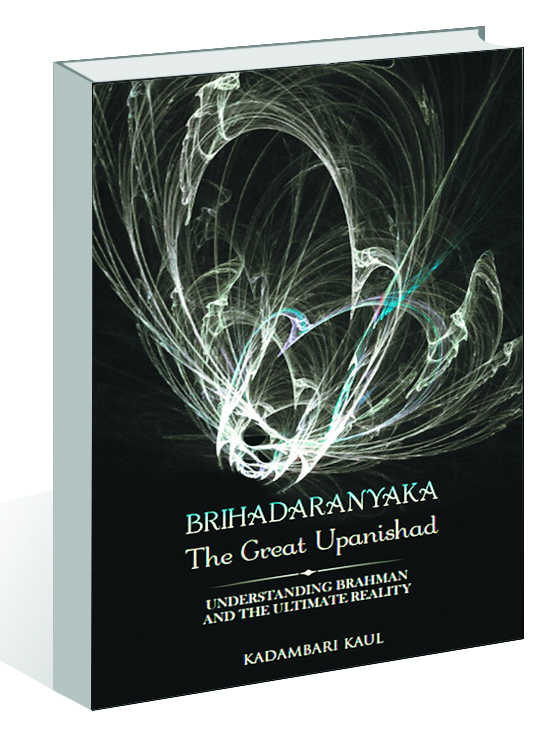Ancient text, modern context
Kuldip Singh Dhir
Seeds of incipient philosophical teachings of the Vedas reached fruition in the Upanishad age. However, there is a shift of emphasis as we move from the Vedas to the Upanishads. Instead of being about numerous gods and sacrifices to appease them, Upanishads settle down on some form of monistic idealism with stress on inner sacrifice, thereby giving a symbolic tweak to the Vedic texts.
Brihadaranyaka ranks among the oldest of the esoteric revelations, which constitute the Upanishad corpus. Yajnavalkya form the core of this pristine work of intuitive wisdom. Kadambri Kaul’s book is an English translation of this text. The original Brihadaranyaka is written largely in prose and it precedes the later practice of employing metric verse. This does not mean that it lacks poetic dimensions. On the contrary, some of its most striking messages are in the form of poetry. Flexible rhyme and rhythm, coupled with flight of imagination, short and crisp lines of free verse have been used deftly by the author to elucidate cryptic thought of the original text.
Brihadaranyaka and the other Upanishads were composed in the eastern part of the northern Gangetic planes. Supremacy of the Brahmins in religious affairs, growing autocracy of the kings and advancement in material civilisation were responsible for giving birth to the philosophical doctrines propounded in these. The Upanishads’ seers turned inwards to churn out thoughts that provided people spiritual nourishment and strength to cope with the challenges of socio-economic and religion-political conditions of the new environment.
One of the oldest works of philosophy, Brihadaranyaka is pre-Buddhist in age. Kadambari’s analyses of the treatise prove that Brihadaranyaka’s teachings are different from that of the Vedas but the latter enjoyed more authority. It endeavours to know Braham, the ultimate substratum of everything. By meditating on the sacred syllable Om, man can attain oneness with the divine and become emancipated.
Brihadaranyaka offers a roadmap to seekers of knowledge and to those who wish to attain ultimate liberation through faith, self-restraint and virtuous life. On this great journey of self-discovery, one gets answers to mankind’s eternal questions regarding creation, man, god, karma... The emancipated soul becomes pure, fearless and immortal. It is a state of mind which can be achieved in this life itself and those who attain it are called jiwan-mukta.
Highly intellectual and logical discourse of this text does not fail to underline that intellect, logic and contemplation are useless without ethical values. The cardinal virtues as enjoined in the Brihadaranyaka are damyatta (exercise self-control), datta (give charity) and dayadhvam (show compassion). The men in power prone to weakness for excesses are advised by Lord Prajapati to practise self-control. The wealthy are instructed to do charity. The cruel are asked to cultivate the virtue of compassion. The message is relevant even today. TS Eliot recounts these very virtues in his writings. In fact, his poem Waste Land recaptures the Brihadaranyaka (5.2.1) in its last section captioned — What the Thunder Said.
Students and scholars of comparative religion will find so many insights in this Upanishad, which have been used as it is or in a modified form by the Sikh Gurus. It is interesting to note that beef eating was not a taboo in the Upanishad age. In Brihadaranyaka 6.4.18., it is mentioned, ‘A man desirous of having a son celebrated for his wisdom and learning, pleasantly eloquent in speech, who has studied all the four Vedas and who would attain a full term of life, he and his wife are instructed to eat rice cooked with meat of a vigorous bull’.
Kadambari’s book beckons readers to explore the rich font of ancient wisdom.










